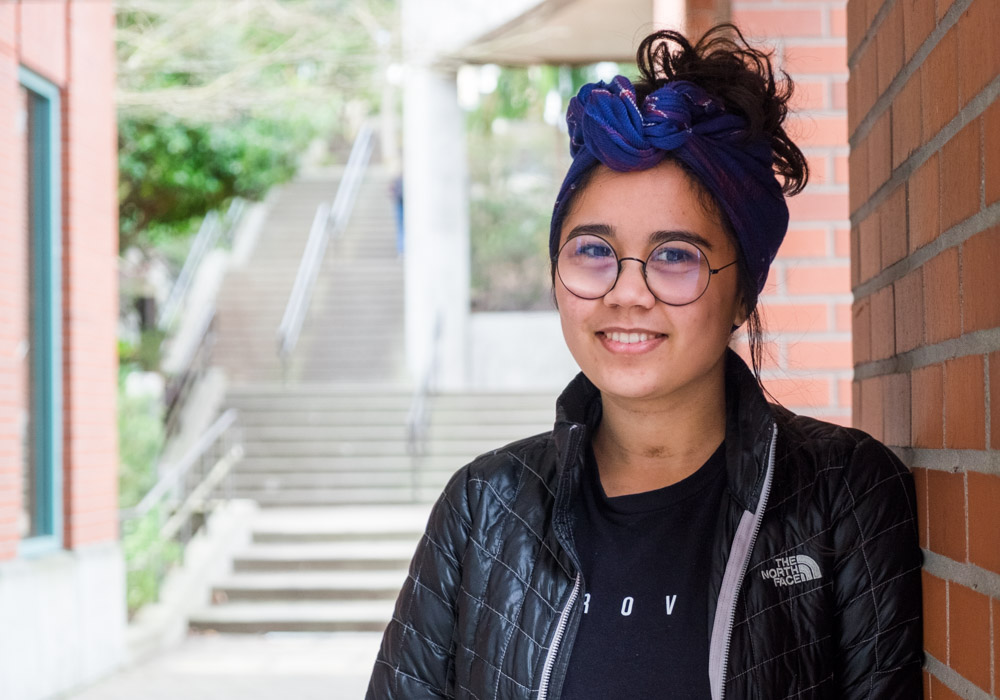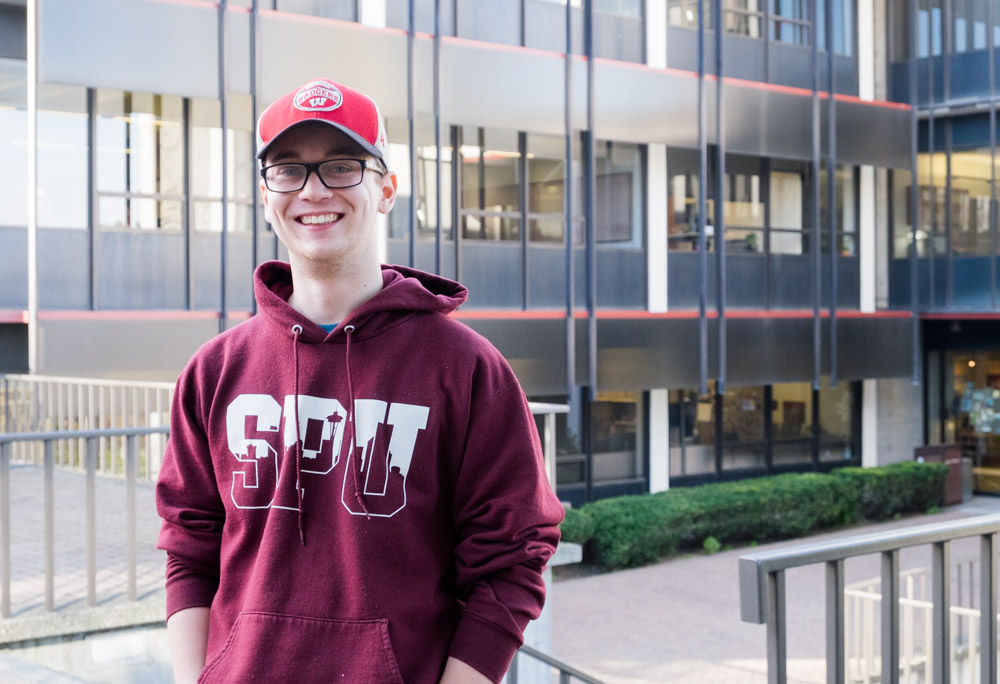Preparing students for leading changes in society
Exploring the relationship between political science and social justice majors
February 25, 2020
Hannah Waterman, a sophomore majoring in political science and social justice with a classics minor, was inspired by her parents work as missionaries in Tijuana, Mexico and is now passionate about immigration.
Laur Lugos, a sophomore majoring in social justice and music composition, recalled her first class on social issues.
Cade Huston, a sophomore majoring in political science, remembered the day that he jokingly claimed he would run for president of the United States.
“It was kind of like an epiphany moment where I said ‘You know what? This is actually what I want to do,’… a lot of people don’t get that with their calling,” Huston said.
Because of their unique experiences, all three of these current Seattle Pacific University students became passionate about social issues and now study political science and social justice to prepare them for a future in political and social advocacy.

Laur Lugos, a sophmore majoring in Social Justice and Music Composition.
Waterman understands how these majors are similar and different, but she feels that she needs both of them because they will help her build the skills she need to get involved in politics one day.
“One of my driving beliefs is that policy makes changes and lasting ones,” Waterman said.
The two systems, while similar in theory, have different purposes in societal change, Lugos said.
“Social justice focuses on how we adjust our existing systems … and political science focuses on how to work with the existing system,” Lugos said.
Director of Social Justice and Cultural Studies Kimberly Segall said that there is a partnership between social justice and political science. At the base of both of the majors are questions of power.
Both majors often focus on the topic of equity.
Associate Professor of Political Science Ruth Ediger explained what equity looks like.
“Here’s four people and here’s four bicycles … equity means that if the goal is to have everyone ride a bike, making sure the bike fits each person.”
Lugos remembered a time during her senior year of high school when she took a class on contemporary social issues in race and gender that piqued her interest in social issues.
“I didn’t know that was an option for something you could study in school and so the fact that I got to take that class my senior year of high school was something that just kind of set off a lightbulb,” Lugos said.
Like Lugos, Huston strongly believes in giving everyone an equal voice. He is an advocate of free speech and works on campus by trying to make sure everyone’s voice is represented through his position on the Student Senate.

Cade Huston, a sophomore majoring in Political Science.
Huston said there are not many people in the Student Senate who have similar political opinions so it can feel difficult to voice his opinion. He said he understands there is a whole political spectrum on campus. Huston said he takes responsibility in representing the side of the spectrum that does not get much representation.
Similarly, Waterman hopes to take on social issues like equity in her involvement in politics. She said having the classes and skills from both of these majors develop the knowledge and skills she needs.
Huston is solely focused on political science, but he sees the connection between the two majors because they both focus on social issues. He also acknowledges there is often a gap between the two majors because political science is often seen as the conservative major while the social justice major is seen as more liberal, especially in terms of faculty.
“I would love to see the gap bridged where we can live together and totally disagree, but be able to discuss things without a chair getting thrown at someone,” Huston said.
Huston said his goal in coming to a university like SPU was to learn how to use his voice to speak out. Huston said that in order for the gap between the two majors to narrow, an active discussion needs to happen. He explained that in order to create change and find the truth, people have to listen to each other.
“We can’t find the truth through silence,” Huston said.
Even with this attempt at active and respectful discussion, Waterman said that the two majors can be quite polarized. She said that a crossover with classes between the two programs would be useful in making them more interconnected.
Huston said while the political science professors express more conservative views in class, they can also point students in the direction of outside sources that express a more liberal viewpoint.
Huston described how one of the political science professors, Dr. Henry, voices his political opinion but knows where to direct his more liberal students if they disagree with him.
Huston explained that if faculty at SPU can be open-minded to political and social issues, this mindset will trickle down to students.
Lugos also expressed that it often seems that there is a disconnect between the two majors. Political science is often seen as the conservative major while the social justice major is seen as more liberal.
Lugos said that within both majors there should be a balance in political opinions. She said it is important to study a number of diverse opinions to understand the whole picture of societal issues.
Waterman said she hopes by majoring in both social justice and political science, she will get a well-rounded view of social issues and learn how to put policy in place to change systemic problems.
“A lot of the things that social justice majors are looking for is systemic change in issues where we see injustice, and political science majors have the ability to work towards those systemic changes because they are in positions of power,” Lugos said.

























































































fejiro • Aug 12, 2020 at 8:46 am
political science has always been a brooding course as well as a concept. i love it because we get to know all the aspect of leadership in government and why our leaders make the decisions they make. we also get to know how problems should be tackled and how leadership should be. please use this link to visit my site for very interesting articles. i will really appreciate it, thank you.